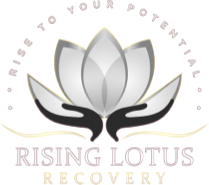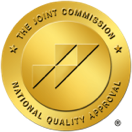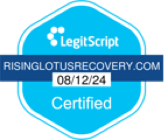Drug addiction is a powerful force that affects millions of people worldwide. It’s not just about bad choices; addiction changes the brain, making it incredibly difficult for people to stop, even when they want to.
This complex condition disrupts the brain’s reward system, fueling intense cravings and triggering withdrawal symptoms. Substances like opioids, nicotine, alcohol, and stimulants can create powerful physical and psychological dependencies, making it difficult to quit on your own.
That’s why professional addiction counseling is often essential in helping people regain control of their lives and break free from the grip of substance dependency.
Whether you’re curious, concerned for a loved one, or seeking help yourself, understanding what makes certain drugs so addictive and how to break free is an important first step.
The Most Addictive Drugs: A Breakdown
Some substances carry a higher risk of addiction than others due to how they interact with the brain. Here’s a look at some of the most addictive drugs and why they’re so powerful.
1. Heroin
Heroin is considered one of the most addictive drugs in the world. Once in the brain, it converts to morphine, causing an intense wave of euphoria. Unfortunately, this “high” is short-lived and leads users to take repeated doses, quickly building tolerance and dependence.
2. Cocaine
Cocaine works by flooding the brain with dopamine, the feel-good chemical. This makes users feel energetic, confident, and euphoric. However, the effects are short, leading to frequent use and increased risk of addiction.
3. Nicotine
Though legal and widely used, nicotine is highly addictive. Found in cigarettes, vaping products, and other tobacco items, this substance stimulates dopamine release, making it hard to quit, despite its substantial health risks.
4. Alcohol
Alcohol’s accessibility makes it one of the most commonly abused substances. It creates feelings of relaxation at first, but excessive use can lead to physical dependence and a host of health issues. Withdrawal from alcohol can also be life-threatening in severe cases.
5. Methamphetamine
Meth alters the brain’s reward system, creating extreme euphoria and a sense of invincibility. It’s both psychologically and physically addictive, with devastating long-term effects on the body.
6. Prescription Opioids
Prescribed for pain management, opioids like oxycodone or hydrocodone can quickly spiral into addiction. Even when used as prescribed, tolerance can develop, increasing the need for higher doses.
7. Benzodiazepines
Commonly prescribed to treat anxiety or insomnia, drugs like Xanax or Valium carry a high addiction risk. Over time, the body becomes dependent, making it difficult to function without them.
Understanding Drug Addiction
Drug addiction is a chronic disease influenced by a mix of biological, psychological, and environmental factors. Here’s what plays a role in addiction development:
- Genetics: Family history can increase susceptibility.
- Environment: Stress, trauma, or exposure to drug use can trigger addiction.
- Brain chemistry: Drugs hijack the brain’s reward system, making quitting seem impossible.
- Personal circumstances: Mental health issues and coping mechanisms are often intertwined with substance abuse.
How Addiction Alters the Brain & Body

Addiction rewires the brain. Over time, substances manipulate dopamine levels, reducing your natural ability to feel pleasure without the drug. Physically, prolonged use can harm your organs, impact mental health, and degrade your quality of life.
Signs of Drug Addiction
Recognizing addiction early can save a life. Here are common red flags to watch for:
- Intense cravings for the substance.
- Loss of control over usage.
- Neglecting responsibilities or relationships.
- Physical withdrawal symptoms like nausea, sweating, or tremors.
- Increased tolerance, requiring larger doses to feel the effect.
The Cycle of Addiction
Addiction follows a distinct cycle that’s hard to break:
- Initial use: Experimenting or using socially.
- Regular use: A pattern begins to form.
- Tolerance: Needing more to achieve the original effect.
- Dependence: Experiencing withdrawal when trying to stop.
- Addiction: A chronic need to use, despite consequences.
How to Overcome Addiction: Steps Toward Recovery
Breaking free starts with acknowledging the problem and seeking help. Here are the steps to take:
- Admit there’s an issue: Acceptance leads to action.
- Reach out: Talk to trusted friends, family, or professionals.
- Set realistic goals: Recovery is a journey, not a sprint.
- Find support groups: Hearing from others can help you stay motivated.
Treatment Options for Drug Addiction
Recovery looks different for everyone. Here are some effective treatment approaches:
- Detoxification to safely manage withdrawals.
- Behavioral therapy (like CBT) to address underlying triggers.
- Medication-assisted treatment (MAT) for conditions like opioid dependence.
- Rehabilitation centers offering structured recovery plans.
The Role of Support Systems in Overcoming Addiction
No one should fight addiction alone. Friends, family, and professionals can provide the encouragement and accountability needed to stay on track. Supporting someone in recovery involves love, patience, and understanding, but it’s worth it.
Prevention: How to Avoid Falling Into Addiction
Prevention starts with education. Learn the risks, stay informed, and develop healthy coping mechanisms to deal with stress or trauma. Surround yourself with positive influences and seek help if you feel at risk.
The Importance of Seeking Professional Help
Professional help can make all the difference. Therapists, doctors, and counselors are trained to guide people through the complexities of addiction and recovery, offering personalized care and support.
The Journey to Recovery
Millions have reclaimed their lives from addiction, and you can too. Recovery may be a challenge, but it’s also an opportunity for growth, healing, and a brighter future.
We’re here to guide you through every stage of the journey. Our team offers care and evidence-based treatments to help you regain control and build a healthier future. If you’re ready to take the first step, reach out to Rising Lotus Recovery.




























